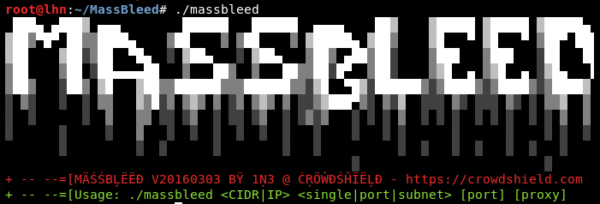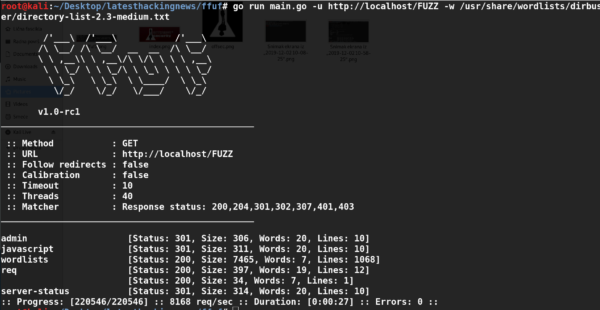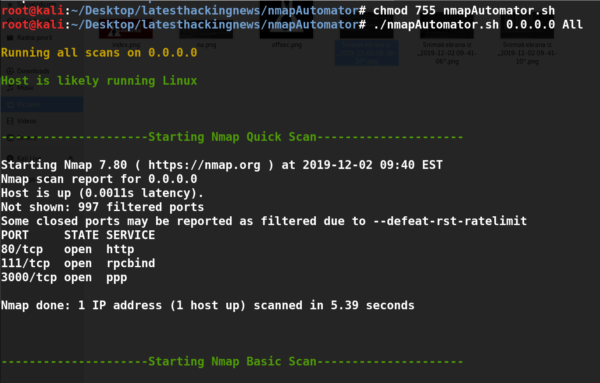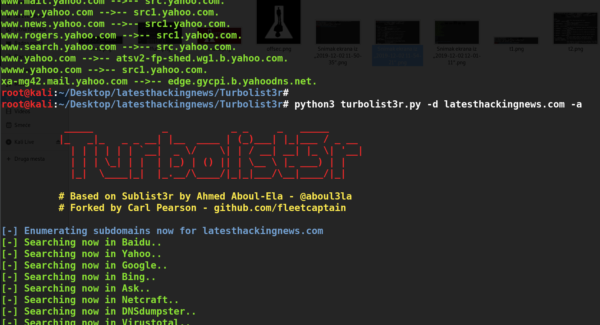MassBleed is an open source tool used for scanning SSL vulnerabilities in web applications. The tool can scan Heartbleed, CCS, Poodle, Winshock, and DROWN attack vulnerabilities in target web applications.
MassBleed Installation
MassBleed requires the following scripts to perform its scan.
Heartbleed POC OpenSSL CCS script Winshock Script Unicornscan Nmap sslscan
Heartbleed, OpenSSL, and Winshock scripts are available in the source code for MassBleed. The source code can be cloned from Github using the following command.
git clone https://github.com/1N3/MassBleed

Once MassBleed source code is downloaded, navigate to the tool’s directory (MassBleed) to change the file permissions of the scripts as shown below.
chmod +x massbleed chmod +x heartbleed.py chmod +x openssl_ccs.pl chmod +x winshock.sh

How MassBleed Works
MassBleed can perform bulk scan of supported vulnerabilities by running the following command.
./ massbleed.sh [CIDR or IP here] [port] [port # here] [proxy]
MassBleed does not scan the domain names but requires IP addresses of the target web applications. We can define a single IP address as target or range of IPs through CIDR (Classless Inter Domain Routing). We can also define a specific port to scan the target web application using the [port] argument. The [proxy] argument requires the configuration of proxychains.conf file at /etc/proxychains.conf to work. The [port] and [proxy] are optional arguments. For instance, we can run the MassBleed scanner in the following format to test the target IP address (69.164.223.208) without specifying any proxy or port options.
./massbleed 69.164.223.208
MassBleed scans the target web application for all the vulnerabilities, such as DROWN, Heartbleed, OpenSSL CCS, Poodle, and Winshock. The tool also checks the supported Ciphers and OS version of the target web application.

We can also run the individual scripts available in the tool’s directory to scan specific vulnerability. For example, we can run heartbleed.py script from the tool’s directory to scan the target web application for the HeartBleed vulnerabilities.
python heartbleed.py 69.164.223.208











